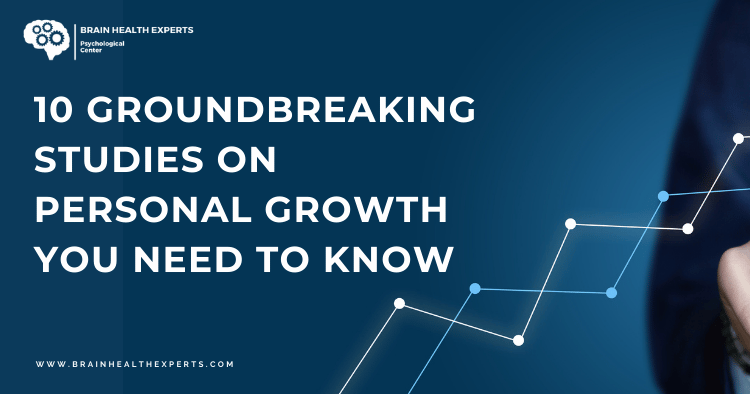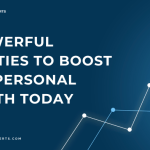Table of Contents
- The Power of Mindset
- The Impact of Gratitude
- The Role of Emotional Intelligence
- The Science of Habits
- The Influence of Social Connections
- The Benefits of Lifelong Learning
- The Importance of Setting Goals
- The Effects of Resilience Training
- The Relationship Between Physical Health and Personal Growth
- The Role of Mindfulness and Meditation
The Power of Mindset
One of the most influential studies on personal growth was conducted by psychologist Carol Dweck. Her research, outlined in her book “Mindset: The New Psychology of Success,” distinguishes between two types of mindsets: fixed and growth.
- Fixed Mindset: This mindset assumes that our abilities and intelligence are static. People with this mindset tend to avoid challenges and give up easily.
- Growth Mindset: In contrast, those with a growth mindset believe that they can develop their abilities through dedication and hard work. This perspective fosters a love for learning and resilience.
Dweck’s research shows that adopting a growth mindset can lead to increased motivation, improved performance, and a greater willingness to face challenges. If you’re looking to enhance your personal growth journey, consider working on developing a growth mindset.
Learn more about how positive thinking can enhance your mindset in 10 Powerful Techniques to Cultivate Positive Mindset.
The Impact of Gratitude
A study published in the journal Personality and Individual Differences by Emmons and McCullough highlighted the profound impact of gratitude on personal well-being. Participants who regularly practiced gratitude reported higher levels of positive emotions, better health, and improved relationships.
Key Findings:
- Improved Mental Health: Regular expressions of gratitude can reduce the risk of depression and anxiety.
- Enhanced Relationships: Grateful people tend to be more empathetic and forgiving, fostering stronger relationships.
To incorporate gratitude into your routine, consider keeping a gratitude journal or expressing appreciation to those around you.
For more on gratitude practices, check out 10 Simple Gratitude Practices to Boost Positive Thinking.
The Role of Emotional Intelligence
Emotional intelligence (EI) plays a crucial role in personal growth. A study by Daniel Goleman emphasizes that EI, which involves the ability to recognize and manage our emotions and those of others, can significantly enhance leadership abilities and personal effectiveness.
Key Components of EI:
- Self-awareness: Understanding your emotions and their impact.
- Self-regulation: Managing your emotions in healthy ways.
- Empathy: Recognizing and responding to the emotions of others.
Developing your EI can lead to better decision-making, improved communication skills, and stronger relationships.
Explore how emotional intelligence can strengthen your relationships in 10 Ways Emotional Intelligence Strengthens Relationships.
The Science of Habits
Research by Charles Duhigg in his book “The Power of Habit” reveals that understanding the cue-routine-reward cycle can help you reshape your habits effectively. Duhigg’s studies suggest that habits are formed through a three-part loop:
- Cue: The trigger that initiates the habit.
- Routine: The behavior itself.
- Reward: The benefit you gain from the behavior.
To foster personal growth, identify your bad habits, understand their triggers, and replace them with positive routines that offer similar rewards.
For more insights on positive habits, visit 10 Daily Habits to Boost Your Positive Mindset.
The Influence of Social Connections
Research by Julianne Holt-Lunstad reveals that strong social relationships can enhance longevity and overall well-being. The study shows that individuals with strong social ties are 50% more likely to live longer than those with weaker connections.
Benefits of Social Connections:
- Emotional Support: Friends and family provide a support system during challenging times.
- Increased Happiness: Positive social interactions boost happiness levels.
Make it a priority to nurture your social connections, as they are vital to your personal growth journey.
Learn more about fostering positive relationships in 10 Ways Positive Thinking Transforms Your Relationships.
The Benefits of Lifelong Learning
Research published in the Journal of Adult Development emphasizes the importance of lifelong learning for personal growth. Engaging in continuous education, whether through formal classes or self-directed learning, can lead to increased cognitive function and job satisfaction.
Key Insights:
- Cognitive Benefits: Lifelong learners show signs of improved memory and critical thinking skills.
- Career Advancement: Continual skill development can enhance job prospects and career growth.
Make a habit of learning something new every day, whether through online courses, books, or workshops.
Explore more about personal development and lifelong learning in Top 10 Must-Read Books for Personal Growth 2024.
The Importance of Setting Goals
Goal-setting is a crucial aspect of personal growth. Research by Edwin Locke and Gary Latham shows that setting specific and challenging goals leads to higher performance compared to vague or easy goals.
Effective Goal-Setting Strategies:
- SMART Goals: Ensure your goals are Specific, Measurable, Achievable, Relevant, and Time-bound.
- Regular Review: Assess your progress regularly and adjust your goals as necessary.
By setting clear goals, you can maintain focus and motivation on your personal growth journey.
Learn more about effective goal setting in 10 Key Strategies for Effective Goal Setting Success.
The Effects of Resilience Training
Studies conducted by psychologists like Martin Seligman have shown that resilience can be cultivated through training. Resilience training teaches individuals how to cope with adversity and bounce back from setbacks.
Key Findings:
- Enhanced Coping Skills: Individuals learn to manage stress and navigate challenges more effectively.
- Improved Well-Being: Resilience training is linked to higher levels of happiness and lower rates of depression.
Consider participating in workshops or programs focused on resilience to strengthen your ability to handle life’s challenges.
For insights on building resilience, check out 10 Effective Strategies for Building Resilience in Mental Health.
The Relationship Between Physical Health and Personal Growth
Research has consistently shown that physical health is closely tied to personal growth. A study published in Psychosomatic Medicine indicates that regular physical activity not only improves physical health but also enhances mental well-being and cognitive function.
Benefits of Physical Health:
- Increased Energy Levels: Regular exercise boosts energy and reduces fatigue.
- Improved Mood: Physical activity triggers the release of endorphins, leading to a happier state of mind.
Incorporate regular exercise into your routine to support your personal growth journey.
Discover more about health and well-being in 10 Ways Positive Thinking Boosts Physical Health.
The Role of Mindfulness and Meditation
Mindfulness and meditation have been shown to significantly enhance personal growth. Research from the American Psychological Association suggests that mindfulness practices can lead to reduced stress, improved focus, and greater emotional regulation.
Benefits of Mindfulness:
- Stress Reduction: Regular mindfulness practice can lower stress and anxiety levels.
- Enhanced Focus: Mindfulness training improves attention and cognitive flexibility.
Consider incorporating mindfulness exercises, such as meditation or deep-breathing techniques, into your daily routine to promote personal growth.
Learn more about mindfulness practices in 10 Mindfulness Techniques to Enhance Emotional Regulation.
In conclusion, these groundbreaking studies underscore the multifaceted nature of personal growth. By understanding and applying the insights from these studies, you can cultivate a more fulfilling, resilient, and growth-oriented life. Remember, personal growth is a journey, not a destination. Embrace it with an open heart and mind!





